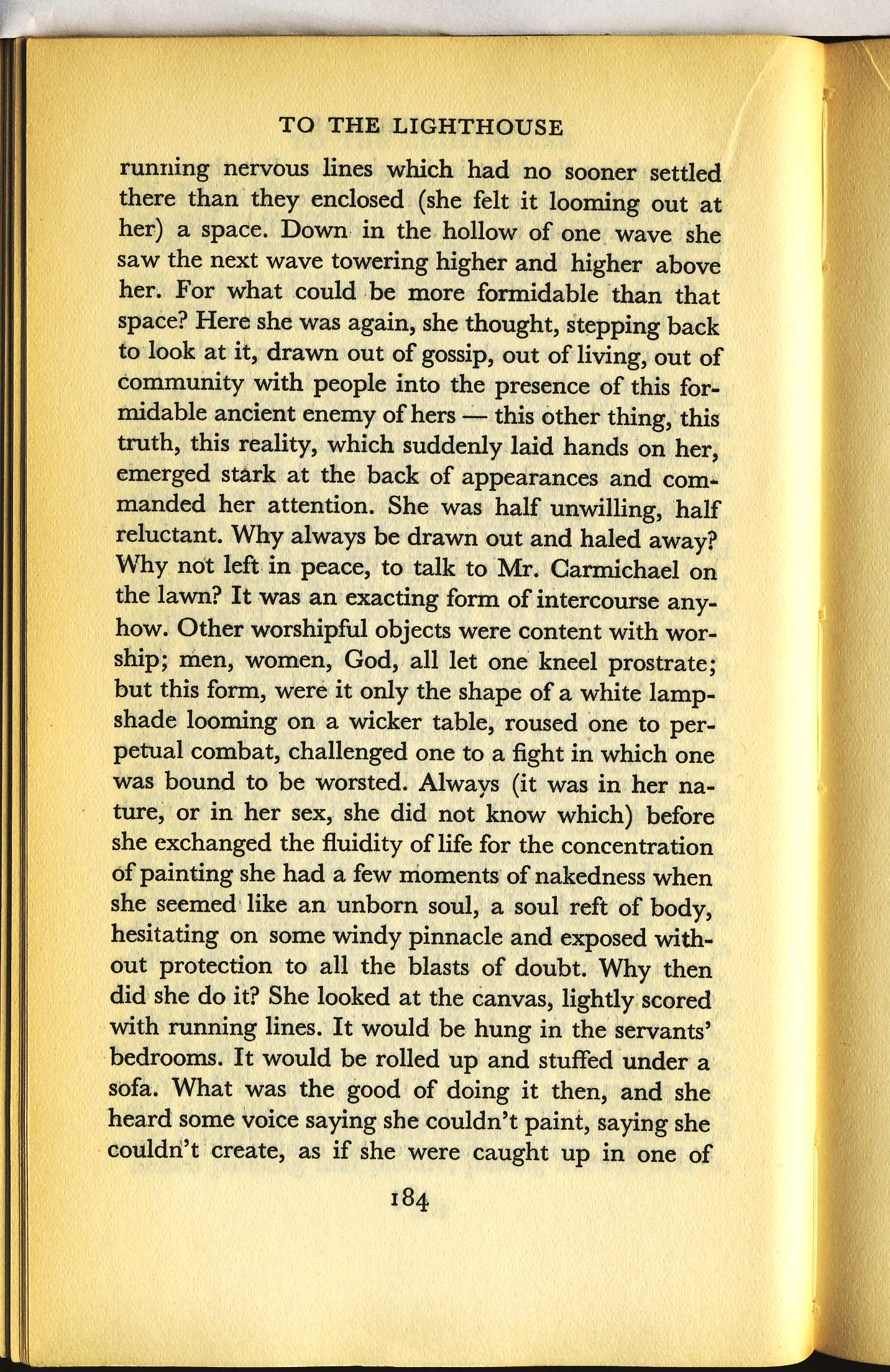
TO THE LIGHTHOUSErunning nervous lines which had no sooner settledthere than they enclosed (she felt it looming out ather) a space. Down in the hollow of one wave shesaw the next wave towering higher and higher aboveher. For what could be more formidable than thatspace? Here she was again, she thought, stepping backto look at it, drawn out of gossip, out of living, out ofcommunity with people into the presence of this for-midable ancient enemy of hers — this other thing, thistruth, this reality, which suddenly laid hands on her,emerged stark at the back of appearances and com-manded her attention. She was half unwilling, halfreluctant. Why always be drawn out and haled away?Why not left in peace, to talk to Mr. Carmichael onthe lawn? It was an exacting form of intercourse any-how. Other worshipful objects were content with wor-ship; men, women, God, all let one kneel prostrate;but this form, were it only the shape of a white lamp-shade looming on a wicker table, roused one to per-petual combat, challenged one to a fight in which onewas bound to be worsted. Always (it was in her na-ture, or in her sex, she did not know which) beforeshe exchanged the fluidity of life for the concentrationof painting she had a few moments of nakedness whenshe seemed like an unborn soul, a soul reft of body,hesitating on some windy pinnacle and exposed with-out protection to all the blasts of doubt. Why thendid she do it? She looked at the canvas, lightly scoredwith running lines. It would be hung in the servants’bedrooms. It would be rolled up and stuffed under a
sofa. What was the good of doing it then, and she
heard some voice saying she couldn’t paint, saying she
couldn’t create, as if she were caught up in one of
184









